Search
Did you mean: Zakutu?
Summary 
Loading AI-generated summary based on World History Encyclopedia articles ...
Search Results
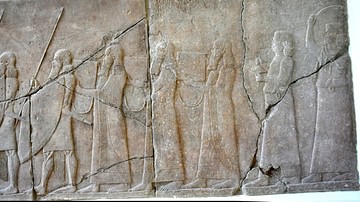
Article
Festivals in Ancient Mesopotamia
Festivals in ancient Mesopotamia honored the patron deity of a city-state or the primary god of the city that controlled a region or empire. The earliest, the Akitu festival, was first observed in Sumer in the Early Dynastic Period (2900-2334...

Definition
Nabu
Nabu (sometimes known as Tutu) is the Babylonian god of wisdom, learning, prophecy, scribes, and writing and was also responsible for the abundant harvest and all growing things. His name means "the Announcer" which refers to his prophetic...
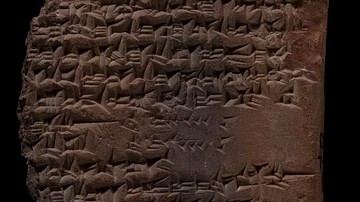
Image
Tablet Describing the Akitu Festival
Fragment of a Babylonian clay tablet, with 16 lines of inscription describing rites in Babylon relating to the Akitu festival. Fragment of the right half, copy of a text containing regulations for making offerings. From the Library of Ashurbanipal...

Video
Oldest Festival (Akitu Eid) in Mesopotamia
In this video I will talk about one of the oldest festivals in the world happened in Mesopotamia.
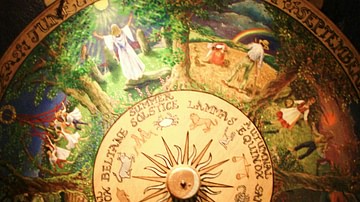
Collection
A Gallery of Religious Festivals from Around the World
Religious festivals have featured as a central aspect of civilization for thousands of years, the earliest thought to be celebrations of the New Year and the concept of rebirth and new beginnings that accompanied it. The first such festival...

Definition
Marduk
Marduk was the patron god of Babylon who presided over justice, compassion, healing, regeneration, magic, and fairness, although he is also sometimes referenced as a storm god and agricultural deity. His temple, the famous ziggurat described...
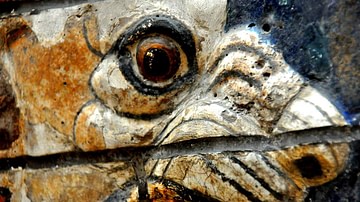
Image
Lion's Head from the Processional Street, Babylonia
A close-up view of a lion's head work relief which decorates the processional street (from Marduk temple to the Ishtar Gate and Akitu Temple). It was made of glazed terracotta bricks. Reign of Nebuchadnezzar II, 604-562 BCE, Babylon, Mesopotamia...

Definition
Inanna
Inanna is the ancient Sumerian goddess of love, sensuality, fertility, procreation, and also of war. She later became identified by the Akkadians and Assyrians as the goddess Ishtar, and further with the Hittite Sauska, the Phoenician Astarte...

Article
The Mesopotamian Pantheon
The gods of the Mesopotamian region were not uniform in name, power, provenance or status in the hierarchy. Mesopotamian culture varied from region to region and, because of this, Marduk should not be regarded as King of the Gods in the same...
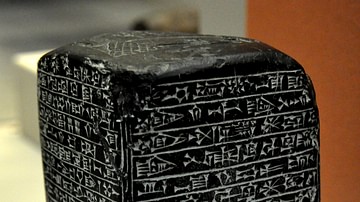
Article
The Marduk Prophecy
The Marduk Prophecy is an Assyrian document dating to between 713-612 BCE found in a building known as The House of the Exorcist adjacent to a temple in the city of Ashur. It relates the travels of the statue of the Babylonian god Marduk...